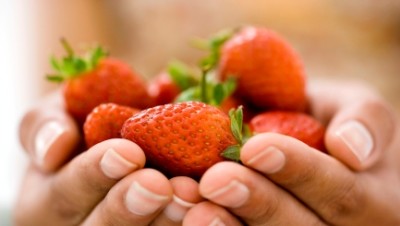Like many people, you may view failing eyesight as a natural sign of aging, but you can actually prevent vision problems if you offer proper nourishment for your eyes. Cataracts and age-related degeneration common eye problems in older adults. Free radical damage contributes to both of these conditions, however, diabetes and obesity also impact your vision, which are primarily lifestyle-driven. For those who want to provide proper nourishment for the eyes, foods that are rich in antioxidants may prevent these diseases and improve your health.
Carrots are best-known for helping vision, but other foods can also contribute to improved eyesight. Vitamins C and E, lutein, zeaxanthin, zinc and omega-3 fatty acids all play a role in eye health. The following are six foods that can improve your eyesight, especially as you age.
Greens
Lutein and zeaxanthin contain carotenoids, organic pigments that give plants a yellow-orange color. These nutrients are found in carrots, squash and other orange or yellow fruits and vegetables. However, leafy greens are clearly the forerunners for these eye-healthy nutrients. Kale and spinach are excellent sources.
Eggs
Lutein and zeaxanthin are also found in eggs. While the amount is lower than in many vegetables, raw egg yolk is easy for the body to absorb, so it is still beneficial.However, heating eggs will damage the nutrients so they are less likely to prevent vision problems. Before you eat raw eggs, consider the source—organic eggs are better than factory farmed eggs, which can cause foodborne illness.
Fish
The cells in your body, including your eyes, cannot function properly without Omega-3 fatty acids. Fish is an ideal source of fatty acids. Salmon, tuna and other oily fish have high animal-based fatty acids, which can lower your risk of age-related macular degeneration. Salmon also contains astaxanthin, a potent antioxidant that can prevent blindness and other eye-related problems.
Berries
Berries are a good source of Vitamin C which will also help to nourish the cells of the body (including eye cells). Strawberries and blueberries are helpful for eye nourishment, along with berry juices that act as a good source of Vitamin C. In addition to the Vitamin C, berries also contain high levels of antioxidants called anthocyanins.
Nuts
Working together, vitamins C and E keep your tissues strong and healthy. This includes your eye tissues. You may get plenty of vitamin C, but most people don’t get enough vitamin E from their foods. Nuts and seeds are a good way to get more vitamin E into your diet that will help protect your vision. Consider adding almonds, pecans or sunflower seeds to your salads for a nutrient boost, or find nuts you like for a healthy snack throughout the day.
Fruits
Aside from berries, many citrus fruits, also promote eye health. Like berries, citrus fruits are high in vitamin C and other nutrients. Grapefruits, oranges and papayas are three examples of eye-healthy fruits that should be incorporated into your diet for better eye health. Combined with a serving of berries, they will keep you seeing sharp—not to mention, they provide a myriad of other health benefits.
If you aren’t a big fan of carrots, there are plenty of other food groups that will help you provide your eyes with nourishment and protection as you age. All of these foods provide for versatility within your meals, so you can easily integrate them into your daily diet and enjoy the benefits of improved vision and healthy eyes. The information for this article was provided by the professionals at Dr. Bishop and Associates who specialize in optometry, and provide eye exams in Calgary.
*Our content is not intended to provide medical advice or diagnosis of individual problems or circumstances, nor should it be implied that we are a substitute for professional medical advice. Users / readers are always advised to consult their Healthcare Professional prior to starting any new remedy, therapy or treatment. Your Wellness Group accepts no liability in the event you, a user of n-gage and a reader of this article, suffers a loss as a result of reliance upon or inappropriate application of the information.
